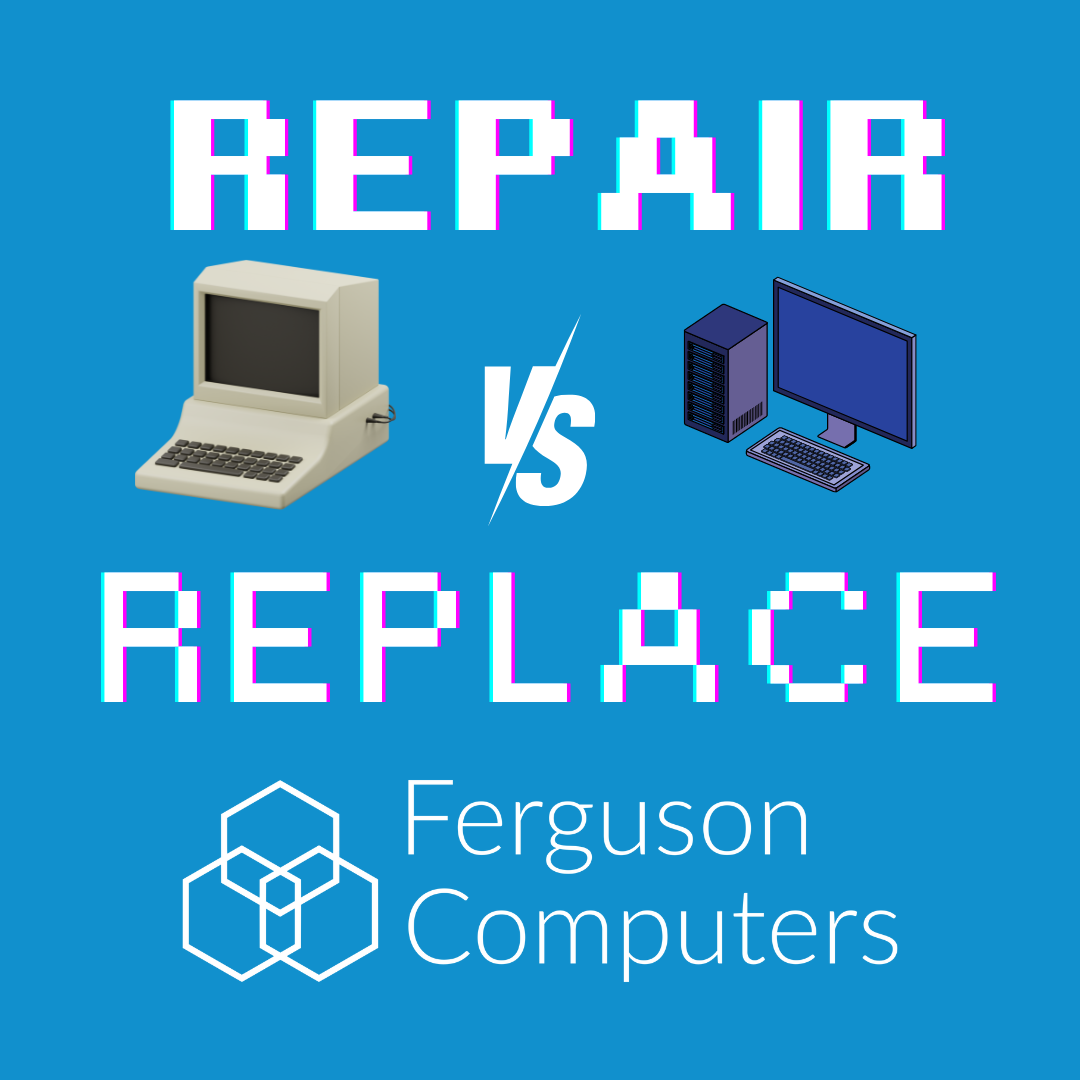Why Computer Maintenance Is Important for Your Business
Bethany Grist • October 17, 2024
It's not just buildings that need maintenance!
Computer maintenance is crucial for the success and efficiency of any business. Here’s why regular computer maintenance should be a priority:
1. Maximises Productivity
- Reduced Downtime: Regular maintenance helps prevent unexpected system failures and crashes, which can halt your business operations. By addressing potential issues before they escalate, your employees can work without interruption, ensuring continuous productivity.
- Faster Performance: Over time, computers can slow down due to software bloat, fragmented files, or outdated hardware. Regular maintenance, such as cleaning up files, updating software, and optimising performance, keeps systems running smoothly and efficiently, allowing employees to complete tasks faster.
2. Enhances Security
- Protection Against Cyber Threats: Cybersecurity is a significant concern for businesses of all sizes. Regular maintenance includes updating antivirus software, installing security patches, and ensuring that firewalls and other security measures are up-to-date. This proactive approach protects your business from malware, ransomware, and other cyber threats that can lead to data breaches or financial loss.
- Data Integrity: Routine backups and system checks help ensure that your critical business data is secure and recoverable in the event of hardware failure, accidental deletion, or a cyberattack. This minimises the risk of data loss and helps maintain the integrity of your business information.
3. Cost Efficiency
- Prevents Major Repairs: Regular maintenance helps identify and fix minor issues before they develop into major, costly repairs. Addressing small problems early can save your business significant money by avoiding expensive downtime or the need for emergency repairs.
- Extends Hardware Lifespan: Maintenance activities such as cleaning hardware components, ensuring proper ventilation, and replacing worn-out parts can extend the life of your computers. This means you can get more value out of your investments and reduce the frequency of purchasing new equipment.
4. Ensures Compliance
- Adherence to Regulations: Many industries have regulations regarding data security, software licensing, and IT infrastructure. Regular maintenance ensures that your business complies with these regulations, avoiding legal issues and potential fines.
- Audit Readiness: A well-maintained IT infrastructure makes it easier to prepare for and pass audits. Whether it's for financial, security, or compliance audits, up-to-date and well-documented systems demonstrate your business’s commitment to industry standards.
5. Improves Employee Satisfaction
- Reliable Systems: Employees rely on computers to perform their jobs effectively. Regular maintenance ensures that systems are reliable and less prone to crashes, which can be frustrating and demoralising. A smooth-running IT environment enables employees to focus on their work without technical disruptions.
- Better Support: A well-maintained IT infrastructure also means that when issues do arise, they can be resolved more quickly. This reduces frustration and downtime for your employees, contributing to higher job satisfaction and morale.
6. Supports Business Growth
- Scalability: As your business grows, your IT needs will evolve. Regular maintenance allows you to plan for upgrades and expansions in a controlled manner, ensuring that your IT infrastructure can scale with your business without causing disruption.
- Adaptability: A well-maintained IT system is more adaptable to new technologies and software. This flexibility is crucial for businesses looking to innovate and stay competitive in a rapidly changing market.
7. Safeguards Reputation
- Avoids Data Breaches: A single data breach can severely damage your business’s reputation and erode customer trust. Regular maintenance helps prevent such breaches by keeping your systems secure and your data protected.
- Professionalism: A business that takes care of its IT infrastructure demonstrates professionalism and reliability to its clients, partners, and customers. This can be a key differentiator in competitive markets.
8. Environmental Impact
- Energy Efficiency: Regular maintenance can include steps to improve energy efficiency, such as ensuring that systems are not overloaded and that power management settings are optimised. This not only reduces your business’s carbon footprint but can also lower energy costs.
In summary, computer maintenance is a vital aspect of running a successful business. It ensures the smooth operation of your IT systems, enhances security, saves costs, supports compliance, and ultimately contributes to your business’s growth and reputation. Prioritising regular maintenance is an investment in your business’s long-term success.

Where We Are
Explore
Opening Times
Tue - Fri: 11am - 6pm
Sat: 11am - 5pm
Sun-Mon: Closed










